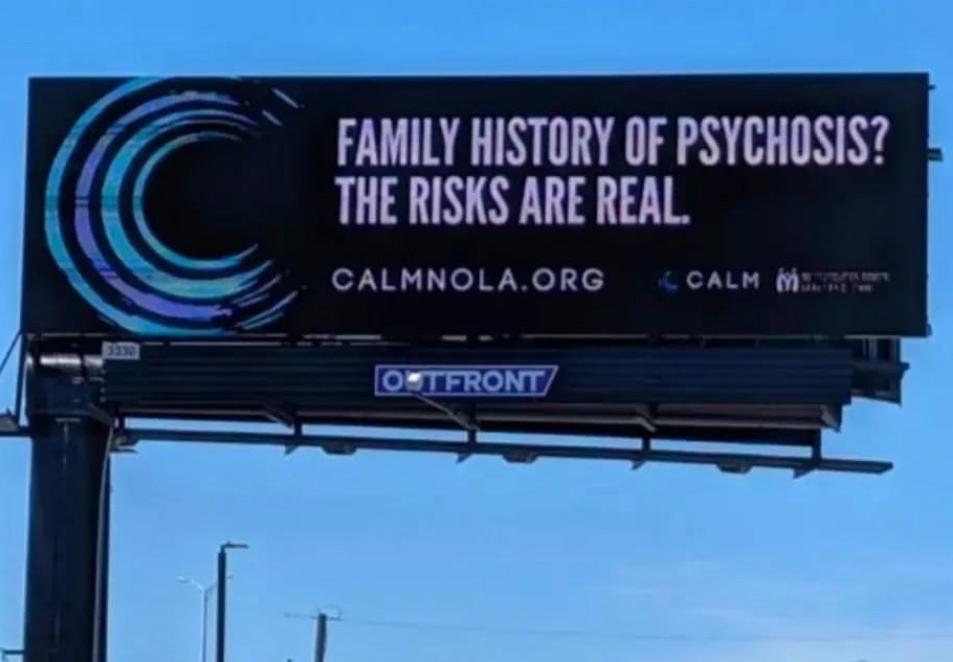Mental health campaign dramatically cuts treatment delays for psychosis
A targeted mental health awareness campaign significantly reduced the time it takes for individuals experiencing psychosis to seek and receive treatment in New Orleans, according to a Tulane University study.
The research, published in the journal Psychiatric Services, evaluated the impact of a campaign that educated the public about early signs of psychosis and encouraged people to seek professional help sooner. Psychosis refers to a collection of symptoms affecting the mind in which people have trouble distinguishing between what is real and what is not. The campaign, called Clear Answers to Louisiana Mental Health (CALM), cut the median wait time between the onset of symptoms and patients receiving treatment from 6.6 months to just 2.1 months at a specialized early intervention clinic.
“We are encouraged by the results of our campaign, which demonstrates how strategic community engagement and targeted outreach can drastically reduce the delay in treatment for individuals experiencing first episode psychosis,” said Dr. Ashley Weiss, vice chair of child and adolescent psychiatry at Tulane University School of Medicine and co-founder of the Early Psychosis Intervention Clinic-New Orleans (EPIC-NOLA). “When psychosis goes untreated, it becomes harder to manage."
The campaign used public transit ads, social media and community outreach to educate people about early warning signs of psychosis. One innovative aspect was an online screening quiz that drew more than 700 completions. The campaign's transit ads generated over 1.6 million views, while social media engagement increased by over 4,000%.
"Most people aren't aware that 3% of people experience psychosis and that it first happens in young adulthood, sometimes signaling the emergence of severe mental illnesses like schizophrenia and bipolar disorders,” says Serena Chaudhry, EPIC-NOLA public health director.
The campaign’s messaging centered on two guiding principles: early psychosis intervention works, and shorter duration of untreated psychosis is associated with better outcomes. Messaging taglines included “Psychosis is real, so is recovery” and “Losing touch with reality? Let’s figure it out,” with integrated QR codes provided for accessing the online quiz whenever possible.
The research is particularly significant for New Orleans, where about 27% of the population lives below the poverty line and mental health services are underfunded. Louisiana ranks last among U.S. states in funding for community mental health services.
The study builds on two pioneering early detection programs— Norway’s The Treatment and Intervention in Psychosis (TIP) clinic and the Specialized Treatment Early in Psychosis (STEP) Clinic in New Haven, Connecticut — that showed public awareness campaigns can significantly reduce the duration of untreated psychosis.
“Despite all we know, stigma is huge and gets in the way of young people getting the help they need early. Given that and the significant obstacles associated with seeking treatment for psychosis, proactive outreach to potential patients is crucial,” said Chaudhry, assistant professor of psychiatry and behavioral sciences at the Tulane University School of Medicine and an adjunct professor at the Tulane School of Social Work. “Initiatives such as CALM play a key role in this process, ensuring that young people experiencing psychosis have a clear, accessible path to the care they need.”


